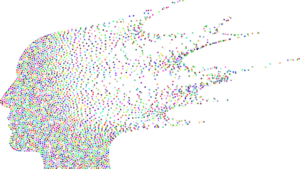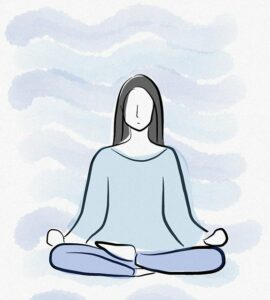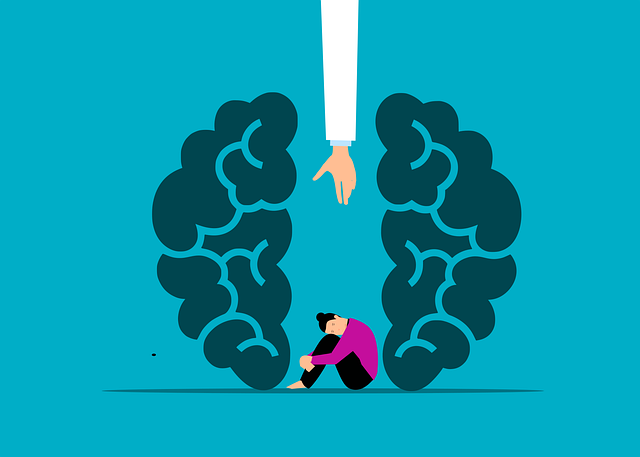Do you have Pure OCD? OCD is not only a debilitating mental illness but, it also interferes with your ability to interact with your environment and restricts you from making the most out of life. If so, you know how difficult it can be to live with this condition. Although it might feel hopeless, there are many ways to manage OCD and improve your life significantly. In this blog post, we will discuss Pure OCD treatment options that can help you get rid of OCD for good.
Contents
What Is Pure O OCD?

Pure O is a subtype of OCD that is characterized by obsessions without visible compulsions. People with Pure O often have mental compulsions, such as repetitive thoughts or mental rituals. These can be just as distressing and time-consuming as visible compulsions. However, because they are not outwardly apparent, people with Pure O often suffer in silence.
Symptoms Of Pure O OCD
Symptoms of OCD usually include but are not limited to:
- Excessive worry or fear about things that may not seem rational
- Obsessing over thoughts, images, or impulses that come into your head
- Spending a lot of time mentally reviewing past conversations or events
- Having repetitive behaviors or mental rituals
- Fear of contamination or dirt
- Intrusive thoughts about harm coming to oneself or others
- Excessive focus on religion or morality
- Perfectionism
- Superstitious beliefs
- Fear of losing things
Treatment Options For Pure O OCD
There are many effective treatment options available for Pure O OCD.
Cognitive Behavioral Therapy (CBT)

CBT is one of the most common and evidence-based treatments for OCD. It’s based on the idea that your thoughts, feelings, and behaviors are linked, and that negative thinking and emotions can put you in a vicious cycle. The aim of CBT is for the individual to become their own therapist and give them the knowledge and tools they need to continue working towards complete recovery from OCD. According to recent research, 75% of people with obsessive-compulsive disorder experience significant relief from cognitive behavioral therapy.
Exposure And Response Prevention (ERP)
ERP is a type of CBT that involves gradually exposing yourself to the things that trigger your OCD and resisting the urge to indulge in the compulsive behaviors that usually follow. This can help to reduce your anxiety and help you to overcome your OCD. For example, if you have a fear of germs and contamination, your therapist may ask you to touch doorknobs and shake hands with people. This may make you feel anxious at first, but eventually, the anxiety will start to fade as you realize that nothing bad is happening and you are safe. Gradually you will be able to face your more dreaded and complex irrational fears.
Medication
Medication can also be an effective treatment for OCD. Commonly prescribed medications include:
- Selective Serotonin Reuptake Inhibitors (SSRIs): SSRIs are a type of antidepressant that helps to increase the levels of serotonin in the brain. This can help to reduce OCD symptoms. Common SSRIs include fluoxetine (Prozac), sertraline (Zoloft), paroxetine (Paxil), and escitalopram (Lexapro).
- Serotonin and Norepinephrine Reuptake Inhibitors (SNRIs): SNRIs are another type of antidepressant that works by increasing the levels of both serotonin and norepinephrine in the brain. Duloxetine (Cymbalta) and venlafaxine are common SNRIs prescribed to treat OCD.
- Tricyclic antidepressants: Tricyclic antidepressants are an older type of antidepressant that works by increasing the levels of norepinephrine and serotonin in the brain. They are not as commonly prescribed as SSRIs or SNRIs, but they can be effective for some people. Examples of tricyclic antidepressants include amitriptyline, imipramine (Tofranil), and clomipramine.
These medications can help to reduce the symptoms of OCD by balancing chemicals in the brain. To increase the effectiveness of treatment, medications are often used along with some form of therapy.
Self-help Strategies
In addition to professional treatment, there are also many self-help strategies that can be effective in managing OCD. Some self-help tips include:
Identifying Your Triggers
What are the things that make your OCD symptoms worse? Once you know what your triggers are, you can try to avoid them or be prepared for them when they do occur. Being aware of your triggers can also help you to identify any early warning signs that your OCD is starting to flare up. Many times, it is possible to head off a full-blown OCD episode by recognizing the early warning signs and taking action to prevent it.
Challenging Your Negative Thoughts
When you have an intrusive thought, try to question it. Are your thoughts really true? What is the evidence for and against your thoughts? Most of the time our thoughts exaggerate reality and by challenging them, we can bring them back to reality. Gaining control over our thoughts helps us look at the situation from a different lens and by learning to shape our thoughts we can learn to shape the behaviors that are more aligned with us.
Practicing Mindfulness

Mindfulness can help you to focus on the present moment and be less attached to your thoughts. Focusing on the now reduces anxiety and irrational worries about the future. Acceptance and Commitment Therapy (ACT) is a form of mindfulness-based cognitive behavioral therapy that can be particularly helpful in managing OCD.
Practicing Relaxation Techniques
Relaxation techniques such as breathing exercises and progressive muscle relaxation can help to reduce anxiety and improve your ability to cope with stress. By tapping into your breathing patterns, you can help to control the fight-or-flight response that is often triggered by anxiety and make you feel like you are in control of the situation.
Exercising
Exercise not only helps to keep you physically healthy but also boosts your mood and reduces stress by promoting the release of endorphins or feel-good hormones. It can also be a great way to distract yourself from OCD thoughts and compulsions. The release of growth factors during exercise stimulates neurons to form new connections, which may help relieve symptoms of OCD.
Making Lifestyle Changes
Healthy lifestyle choices such as getting enough sleep, eating a balanced diet, and reducing stress can all help to improve your OCD symptoms in the long run. Making sustainable and healthy lifestyle changes can improve your overall quality of life, increase confidence and self-esteem, and reduce the frequency and severity of OCD episodes.
Conclusion
Lastly, there are many different ways to treat OCD. Some people may only require medication, while others may benefit from a combination of medication and therapy. There is no one-size-fits-all solution and it is important to work with a mental health professional to figure out what treatment plan is best suited for your needs. Managing OCD on your own can be overwhelming and complicated.
While there is no cure for OCD, with proper treatment, most people with OCD can learn to manage their symptoms and live happy and productive life. Our team of adept mental health professionals at Therapy Mantra can help you navigate through your OCD journey. Visit our website to book an online therapy session or you may also download our free OCD treatment app on Android or iOS for more information.


